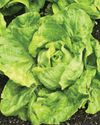
Flower farming. That's right. Flower farming is an actual thing, and while it might not be as mainstream as row cropping, cattle ranching or even market gardening, small-scale flower farmers are making it big!
If you love flowers, few endeavors are likely to be as rewarding as starting your own flower farm.But speaking as someone who has owned and operated a flower farm for several years, flower farming isn't all sunshine and daisies. I've made more mistakes than I have grown flowers, so I thought I'd share five pitfalls potential flower farmers should seek to avoid.
1. EVERYTHING ISN’T BEAUTIFUL
People often want to begin a flower farm for the aesthetic. Flowers are beautiful, and we associate them with vibrant and bright colors in showy landscaped gardens. Who wouldn’t want a yard filled with rows of beautiful flowers?
But flower farmers do not grow flowers in this way. Flower farms rarely have fields filled with rows of color, as flowers are often harvested before they reach their peak performance. Growing cut flowers is a business, and the flowers are cut out of your field in order to sell and distribute them.
If you are seeing fields with rows of color, you’re likely not selling as many flowers as you should be!
2. DON’T GROW TOO MANY FLOWERS
Every year I think about doubling the size of my flower farm, and every year I have to have a difficult conversation with myself. Expanding your growing space, I’ve learned, doesn’t always mean increasing production and profitability.
When you first begin your flower farming journey, it is so easy to think, “I will plant 7 acres and grow all the flowers.” This is a recipe for disaster.
This story is from the January - February 2025 edition of Hobby Farms.
Start your 7-day Magzter GOLD free trial to access thousands of curated premium stories, and 9,000+ magazines and newspapers.
Already a subscriber ? Sign In
This story is from the January - February 2025 edition of Hobby Farms.
Start your 7-day Magzter GOLD free trial to access thousands of curated premium stories, and 9,000+ magazines and newspapers.
Already a subscriber? Sign In

The RISE of Opportunist WEEDS
Be prepared to see increasing changes in weeds we fight, such as poison hemlock and poison ivy, and in the crops we grow.

LIVESTOCK Health
Prepare yourself for how to spot symptoms of illness in your farm animals so that you can get them help before it's too late.

CUT FLOWER Farming
If you're considering growing flowers for sale, brush up on these five key things to know before diving in.

WINTER Survival
Keep your land, animals and yourself in good shape this winter with this helpful advice.

COVERAGE CONCERNS
Avoid common insurance mistakes for rural and hobby farm businesses.

FARMER'S GUIDE Berries
Set the stage for tasty strawberries, blueberries and brambles with these soil-boosting garden tips.

Preconditioning CALVES
Follow our step-by-step guide to get more money for your calves.

Soil Conservation
Often, outside of having a specific problem that needs to be addressed, soil conservation isn't something every farmer readily thinks about. Yet conserving the soil should be at or near the top of every farmer owner or manager's list of concerns because absent the prevention of soil erosion, we have the opportunity for another dust bowl.

Year-Round Lettuce & Salad Mixes
It's easy to think of salad greens as just a spring- or fall-garden crop, but it's possible to enjoy freshly harvested lettuces, mustards and more from your own garden year-round.

Barn Improvements
Days are never long enough for a farmer. From dawn to well into the night, tasks arise that often require immediate action. Having to search for tools or equipment is an enormous time waster and incredibly frustrating when you can't find what you need, especially when you know you have it.